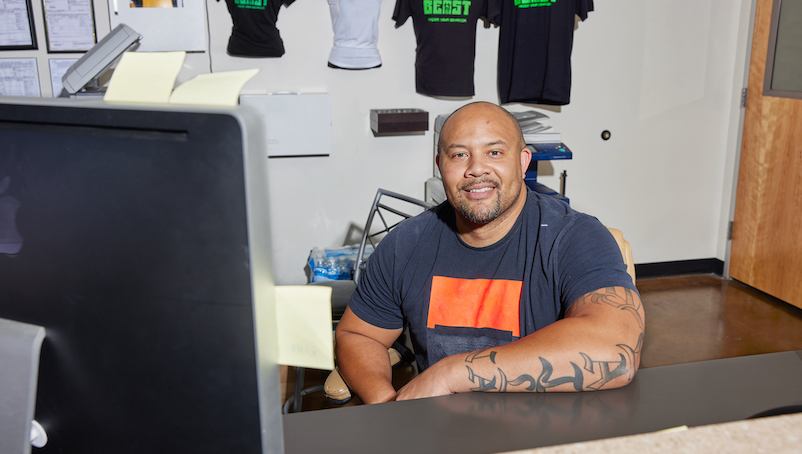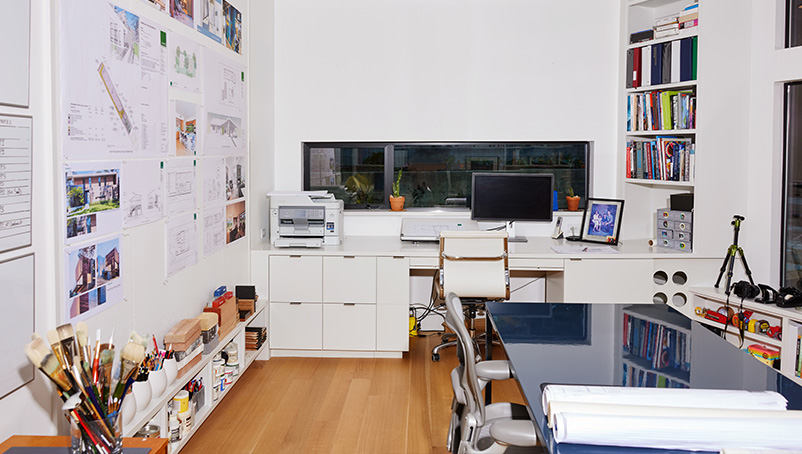What type of property damage can general liability insurance cover?
Property falls into two categories: real property and personal property.
- Real property refers to land or things attached to land. This might include a building or a sign post or trees sitting on the land.
- Personal property is all other types of property. This includes your stuff — things you own and can move around, like clothes, cars, art, jewelry and electronics. Personal property can also include intangible things that can’t be seen or touched. This might be a bank account, intellectual property, occupational licenses and investments like stocks or bonds.
General liability insurance can help cover someone else’s real property or personal property if they’re damaged by you or your employees.
Property is considered ‘damaged’ if it:
- Loses monetary value, or
- Loses functionality.
For instance, if a painter breaks a client’s window while working on their property, general liability insurance can help cover the cost of repair or replacement.
Or, let’s say you’re a nail technician and you accidentally stain a customer’s designer handbag and they sue you to recoup their loss. General liability insurance could help pay for court and legal fees.
Does general liability insurance cover commercial property damage?
Unfortunately, the answer isn’t a simple “yes” or “no.”
General liability covers both real and personal property damages or injuries you (or your employees) cause to someone else, such as a customer, passerby, supplier or vendor. But that’s where it draws the line. A general liability policy generally does not protect property damage to your own business.
What type of insurance protects your own business property?
Two types of business insurance can provide coverage for your own business property. For your own protection, look for commercial property insurance or a business owner’s policy (also called BOP insurance) which combines general liability with commercial property coverage to help protect your own business gear, goods and inventory.
1. Commercial Property insurance
Commercial property insurance can help protect your business from property damage. It can help protect your business gear, inventory, equipment, buildings and income if a fire or another covered event requires you to close temporarily (if your policy includes business income insurance).
The cost of commercial property coverage depends on a number of factors, including your company’s risk level, total property value, operations, claims history and location.
Commercial property insurance can protect\s your business property but does not have essential coverage for injuries, defamation lawsuits and damages to a third party’s property.
2. Business Owner’s Policy (BOP insurance)
BOP insurance combines general liability insurance with commercial property insurance in one convenient, and often more affordable, package.
A BOP can be custom-made to match the needs and risks of your company and industry. Because coverage is personalized to each business, the cost can vary. But you’ll usually pay less for BOP coverage than if you buy two separate policies, and it can save your company up to 10%.
Bundling general liability and commercial property policies into a BOP can give you broad coverage that includes:
- Property damage to your building and its contents.
- Injuries your company or employees might cause to others.
- Loss of income if a fire or other incident causes you to close unexpectedly.
- Some court and legal fees if you need an attorney.
- Copyright infringement in your advertising, such as libel, slander or other advertising mistake.
- Inventory replacement if fire, a covered water event or another source damages your business property.
7 tips to help prevent business property damage
Total damage prevention to business property isn’t possible, but finding and fixing your weak spots is key. Try these tips to protect yourself and your business from property damage:
- Perform routine maintenance: Inspect your property to check for business hazards before they become problems. Keep your building up to code.
- Take safety precautions. Use protective measures such as safety barriers, mats or covers when working on projects that could potentially cause damage. Ask clients to remove valuables from the areas where you’re working.
- Get business insurance: Coverage that includes property damage (applied to your own things or someone else’s) can help share the risk.
- Install a security system: Cameras, alarms and access control measures can deter potential intruders and record mishaps to back up your story in a legal claim.
- Install weatherproofing and fire safety measures: This could include storm windows, smoke detectors, fire extinguishers and sprinkler systems.
- Train employees: Proper safety procedures and emergency protocols can minimize the risk of accidents that could lead to property damage.
- Keep detailed incident reports: Documentation is helpful if you need to file an insurance claim or defend yourself in a lawsuit.
Combine action with insurance protection to help reduce the likelihood of property damage, insurance claims and lawsuits.
What else can general liability insurance cover?
General liability insurance can help protect against several types of accidents that can affect small business owners and the self-employed. This type of insurance can also protect you if you’re sued due to an injury or damages.
General liability policy costs can vary depending on your business; You can estimate your premium with a general liability calculator.
As for coverage, a typical general liability policy includes:
- Bodily injury and property damage caused by your business.
- Legal costs and settlements if someone sues your business.
Advertising injury and personal injury claims, such as defamation or infringing on someone’s copyright in your advertisement.









